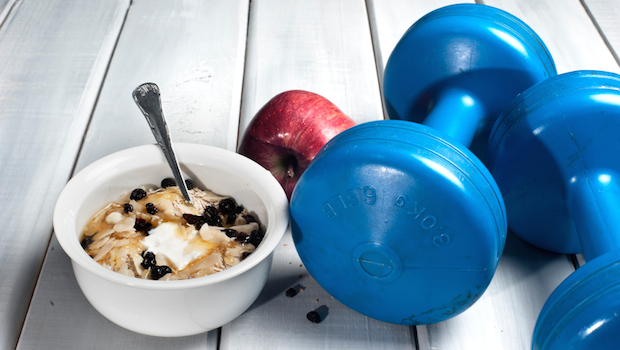Well, in short, yes. But there’s a delicate balance at play here, and its essential to investigate that further. Working out on an empty stomach has it’s intrinsic benefits – like burning more fat per workout and so on. But in some cases, the downside greatly outweighs the benefits.
The British Journal of Nutrition and the International Journal of Sports Nutrition and Exercise Metabolism have found that being in a ‘fasted’ state burns nearly 20% more fat than those who’ve eaten beforehand. Proponents of this school of thought suggest that aerobic training while fasting lowers more body fat percentage. This is because the body is switching fuel resources. When the body runs out of glycogen reserved (stored up carbohydrates) while working out, such as in a fasted state, the body switches to the fat reserves, hence the increase in fat burn. So that’s good, right?
Maybe not, actually. For starters, its essential for the human body to have its fat reserves and it isn’t a fan of it being ‘starved’. With the rapid burning of fat, the body adjusts the rate of metabolism accordingly, to compensate for that loss. Due to this compensation, extended periods of fasting can lead to a drop in resting metabolic rate. In other words – a complete counteraction of the fat burning benefits we just spoke about earlier. Pre-fueled workouts also reduce the urge to eat later. Considering weight loss largely comes down to how much you eat, starving until your workout and gorging later may upset the calorie deficit you’ve worked hard in creating.
Some circumstances of fasted workouts can cause you to shed some muscle in addition to fat. When out of glycogen reserves, the body may burn down muscle protein with fat reserves at times, making it tougher to recuperate the muscle mass that’s broken down in a heavy workout. Having said that, this muscle cannibalism only happens when you increase the intensity of workout more than your normal routine.
Don’t get me wrong, we’re not discussing intermittent fasting here – which I highly recommend and have written about in my previous blogs. Here we are talking about whether you should continue that fasted state even through your workout. A study published in the Journal of Science and Medicine in Sports suggests that fasted training reduces the maximal output of an athlete, in that over a prolonged period of time, fasted workouts may decrease your overall energy output during because of a combination of factors mentioned above.
All in all, it really comes down to personal preferences. Some people prefer to be in a fasted state before a workout because a snack or pre-meal bloats them or impedes their workout. They feel lighter and more focused. But beyond that, there are not many benefits. Eat a carb dense meal about an hour before your workout, or whatever you nutritionist recommends and have a content and happy workout, instead of being ravenously hungry after and doing more damage. You decide!
